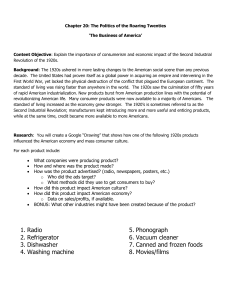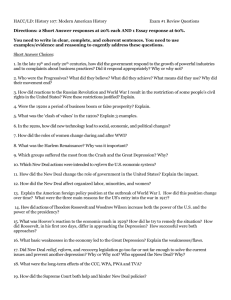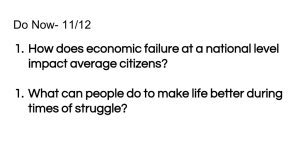Prosperity and Depression
advertisement
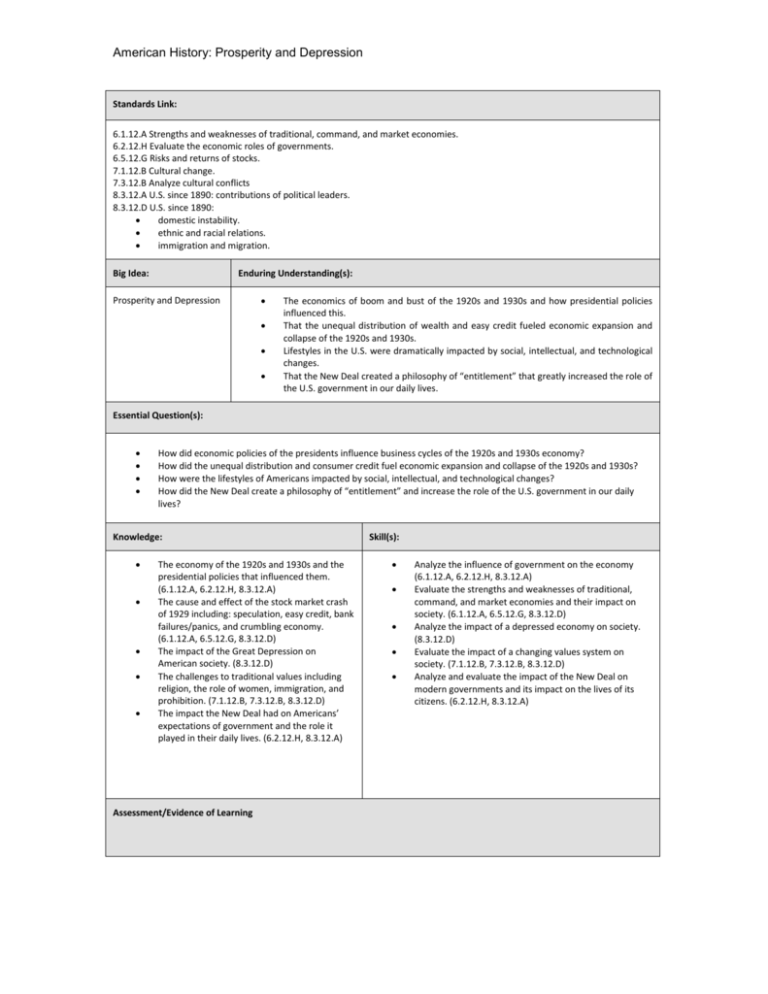
American History: Prosperity and Depression Standards Link: 6.1.12.A Strengths and weaknesses of traditional, command, and market economies. 6.2.12.H Evaluate the economic roles of governments. 6.5.12.G Risks and returns of stocks. 7.1.12.B Cultural change. 7.3.12.B Analyze cultural conflicts 8.3.12.A U.S. since 1890: contributions of political leaders. 8.3.12.D U.S. since 1890: domestic instability. ethnic and racial relations. immigration and migration. Big Idea: Enduring Understanding(s): Prosperity and Depression The economics of boom and bust of the 1920s and 1930s and how presidential policies influenced this. That the unequal distribution of wealth and easy credit fueled economic expansion and collapse of the 1920s and 1930s. Lifestyles in the U.S. were dramatically impacted by social, intellectual, and technological changes. That the New Deal created a philosophy of “entitlement” that greatly increased the role of the U.S. government in our daily lives. Essential Question(s): How did economic policies of the presidents influence business cycles of the 1920s and 1930s economy? How did the unequal distribution and consumer credit fuel economic expansion and collapse of the 1920s and 1930s? How were the lifestyles of Americans impacted by social, intellectual, and technological changes? How did the New Deal create a philosophy of “entitlement” and increase the role of the U.S. government in our daily lives? Knowledge: The economy of the 1920s and 1930s and the presidential policies that influenced them. (6.1.12.A, 6.2.12.H, 8.3.12.A) The cause and effect of the stock market crash of 1929 including: speculation, easy credit, bank failures/panics, and crumbling economy. (6.1.12.A, 6.5.12.G, 8.3.12.D) The impact of the Great Depression on American society. (8.3.12.D) The challenges to traditional values including religion, the role of women, immigration, and prohibition. (7.1.12.B, 7.3.12.B, 8.3.12.D) The impact the New Deal had on Americans’ expectations of government and the role it played in their daily lives. (6.2.12.H, 8.3.12.A) Assessment/Evidence of Learning Skill(s): Analyze the influence of government on the economy (6.1.12.A, 6.2.12.H, 8.3.12.A) Evaluate the strengths and weaknesses of traditional, command, and market economies and their impact on society. (6.1.12.A, 6.5.12.G, 8.3.12.D) Analyze the impact of a depressed economy on society. (8.3.12.D) Evaluate the impact of a changing values system on society. (7.1.12.B, 7.3.12.B, 8.3.12.D) Analyze and evaluate the impact of the New Deal on modern governments and its impact on the lives of its citizens. (6.2.12.H, 8.3.12.A) American History: Prosperity and Depression 18th Amendment Debate 1920s figure Facebook Harlem Renaissance Collage New Deal Political Cartoon Learning Activities: Dealing with Great Depression: New Deal Program Cards, U.S. Statistical Analysis Political Cartoons Photo Analysis First Person Accounts of the Great Depression Langston Hughes Poetry Graphic Organizers Primary Source Document Analysis Resources: Text Federal Reserve Bank Video Clips Websites Primary Sources Articles
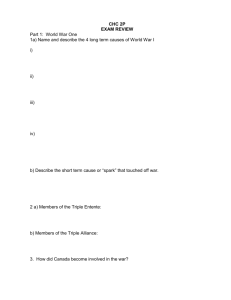
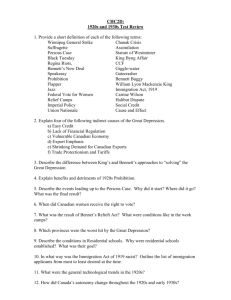
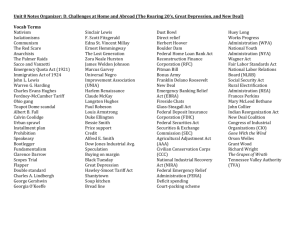
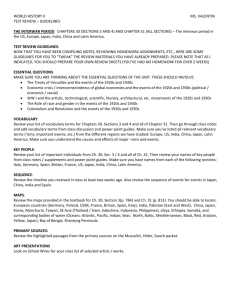
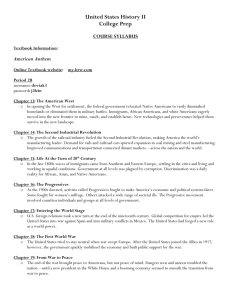
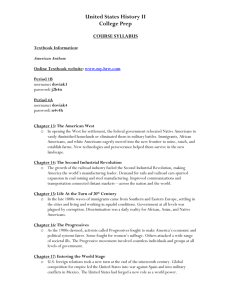
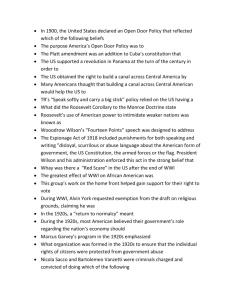
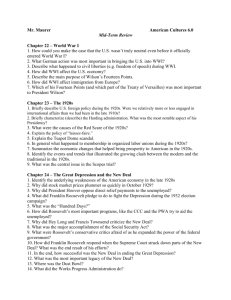
![SOL_Review_Unit_10_2010[1]](http://s3.studylib.net/store/data/007061648_1-0ff216384ad704ee70792621670387e7-300x300.png)
